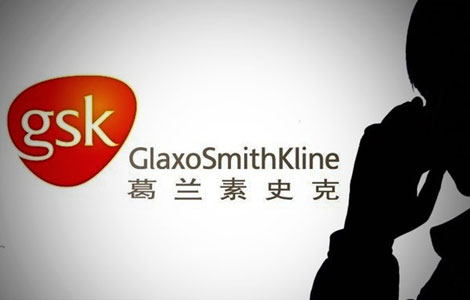Chinese films: So far, so good
Updated: 2013-07-12 07:25
By Zhu Jin (China Daily)
|
||||||||
It seems to be the best of times for China's film industry. With Tiny Times raking in 263 million yuan ($42.89 million) in the last four days of June (it was released on June 27), the domestic film market registered its highest half-yearly box office returns -10.9 billion yuan in the first six months of 2013, up 35 percent year-on- year.
More importantly, Chinese films accounted for 63 percent of the box office revenue compared with just 34 percent in the first half of last year. But the question is: Can this success be sustained and can Chinese films really compete against Hollywood blockbusters?
"The Chinese film market is rapidly expanding with over 3,000 new screens added each year. But despite this, there is still an element of luck behind the record box office revenue," says Peng Kan, research and development director at Beijing-based consulting company Legend Media.
"Most Hollywood movies screened in China in the first half of this year were similar in content, and Chinese cinemagoers are tired of watching American superheroes saving the world. Most Chinese viewers are suffering from 'Hollywood fatigue' after seeing similar stories being repeated in one Hollywood film after another, especially because they are far removed from people's daily lives."
In contrast, domestic films have been dealing with real life issues and telling stories which young Chinese cinemagoers can associate with. For example, debutant director and famous actress Zhao Wei's So Young portrays the lives of a group of students in the 1990s and their loss of innocence. Not surprisingly, it made about 720 million yuan at the box office in May.
Film producer Yan Jing says that "youth movies", rarely made earlier, are becoming common because teenagers and young adults comprise the largest group of cinemagoers in China.
Tiny Times and other strong box office performers, such as American Dreams in China and Finding Mr Right, also targeted teenagers and young adults by incorporating many of the hot issues discussed on micro blogs into the plots. But Yan cautions that youth movies need to be carefully crafted. Otherwise, viewers will get tired of seeing the same theme being repeated.
Creative marketing strategies are another reason for the success of domestic films. And social media marketing have played a special role in boosting the profile of Chinese movies by raising film topics for discussion and organizing online conversations with directors and actors.
Some producers have even triggered disputes to stimulate people's curiosity about a movie. For instance, some people went to watch Switch just to see if it was as bad as others said it to be. The trick has worked because the film has grossed nearly 300 million yuan at the box office even though most viewers didn't like it.
Tiny Times, despite being hugely controversial, toppled Man of Steel from the top spot. Perhaps the debate on the values of young people that it deals with has helped sell the film to its target audience. But some film industry professionals are worried that if there is a spate of films that just copy the elements of a successful one, it will alienate audiences in the long run.
The box office success of domestic films, to some extent, also reflects the interests and tastes of "middle China", because most of the new cinemagoers are from second- and third-tier cities and their tastes are different from those in first-tier cities. It is thus likely that this support for domestic films will wane. "Experience tells us that viewers' interests could gradually switch from domestic to overseas movies," says Yin Hong, a professor at Tsinghua University's School of Journalism and Communication. So despite the improvements in content and marketing strategies, Chinese movies cannot expect to draw cinemagoers for a long time.
"For many people, the box office reflects the market scale. But the movie market is not about the box office alone. When we look at the entire market, China still lags far behind the US," says Huang Qunfei, CEO of New Film Association, which runs a chain of 100 cinemas across the country.
In the US, the box office usually accounts for only 22 percent of the total revenue generated by a film. The rest comes from non-theatrical releases and film-related products such as books, toys and even theme parks. But in China, the box office accounts for more than 80 percent of a film's total revenue. Therefore, the record box office revenue in the first six months doesn't mean domestic movies have become more competitive.
"We should not be so optimistic. We are still far behind Hollywood. For me, film production is still a gamble," says Wang Changtian, the CEO of Enlight Media, a private listed company whose films contributed 29 percent of the box office revenue in the first half of this year.
And if it is a gamble, we have to keep our fingers crossed.
The author is a reporter with China Daily.
E-mail: zhujin@chinadaily.com.cn.
(China Daily 07/12/2013 page9)
Most Viewed
Editor's Picks

|

|

|

|

|

|
Today's Top News
Constructive mood at Sino-US talks
China, Russia consider increasing naval drills
2 pilots called for Asiana to abort landing
Increased cooperation brings benefits
Japanese defense report lashed out
Lifesaving top priority, premier says
China's astronauts ready for challenge
Top GSK executives investigated
US Weekly

|

|













